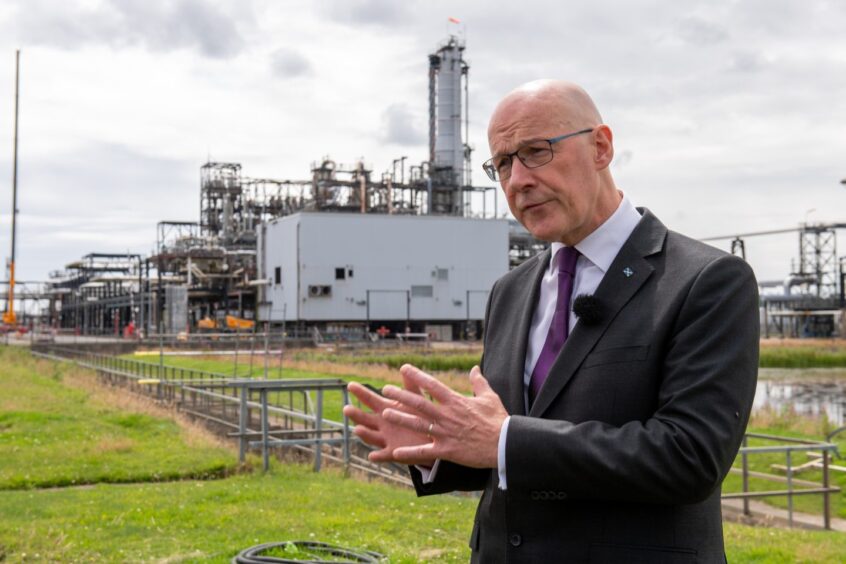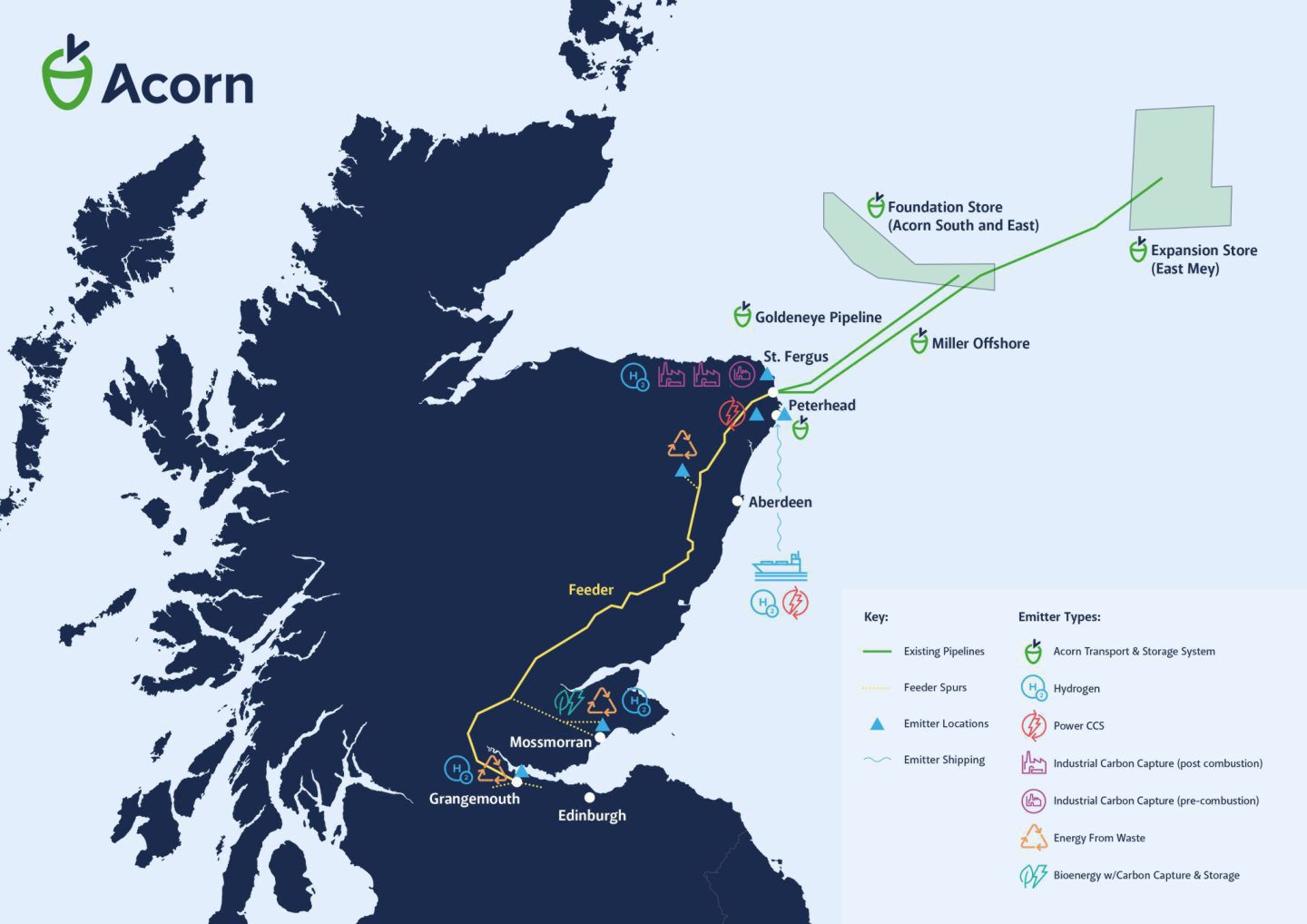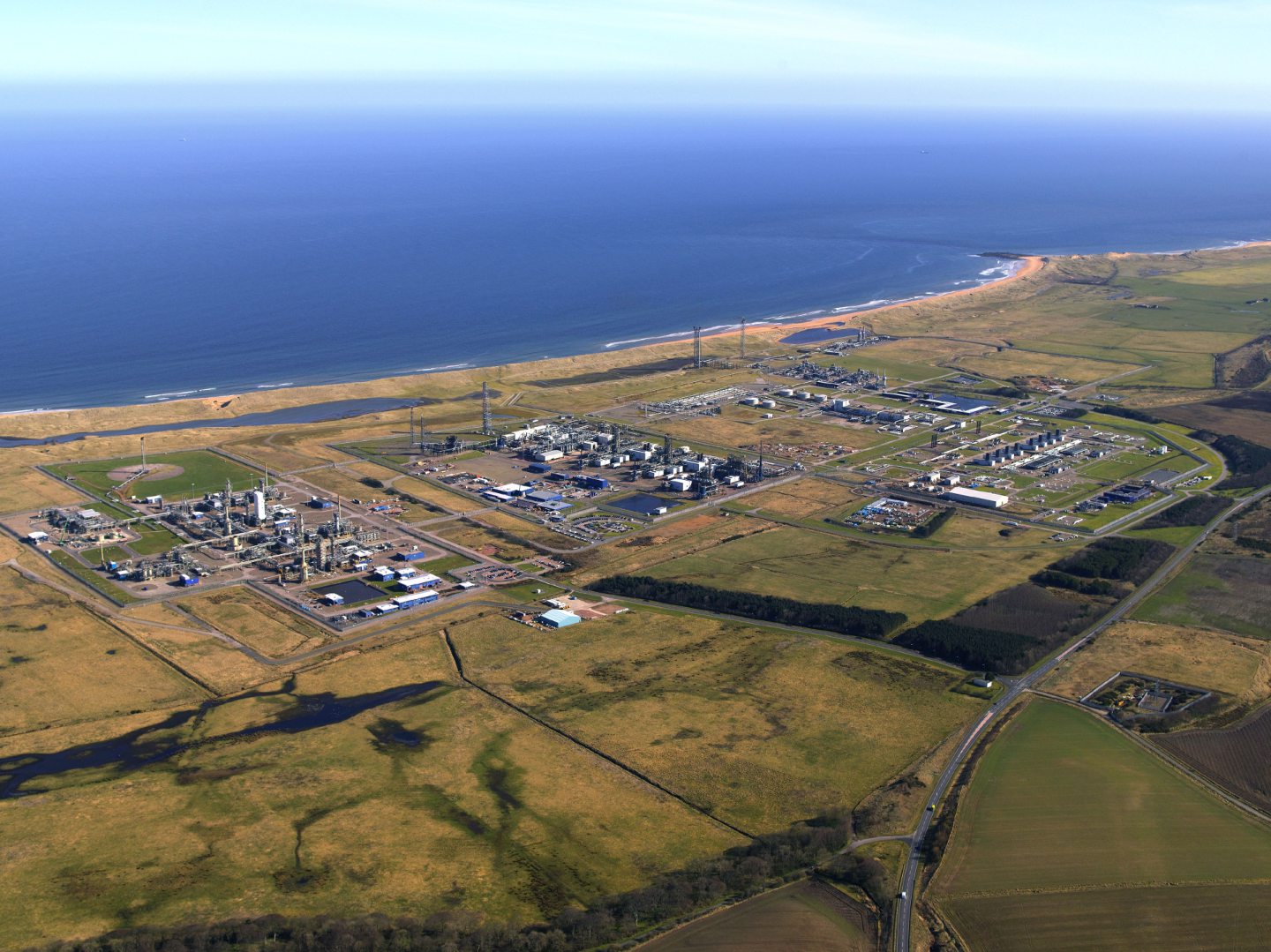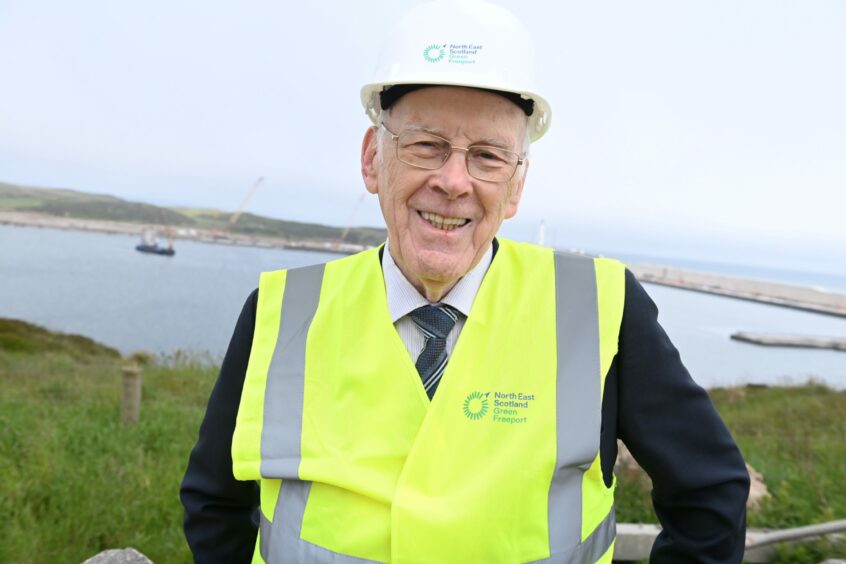
The Scottish government has announced £2 million in funding for the Acorn carbon capture and storage (CCS) project centred on the St Fergus gas terminal.
The funding will be used to explore how a pipeline could transport carbon dioxide (CO2) from industrial areas in Scotland’s central belt to the North East.
The Acorn project is a joint venture with the Scottish Cluster, and involves North Sea operators Shell UK, Harbour Energy and North Sea Midstream partners alongside Storegga and National Gas.
The UK government confirmed funding for the project last year as part of the Track 2 cluster sequencing.
The Scottish Cluster incorporates industrial emitters and power, hydrogen, bioenergy and waste-to-energy operators across Peterhead, Grangemouth and Mossmorran seeking to capture and store CO2 emissions under the North Sea.
Developer Storegga expects Acorn to create around 21,000 jobs at peak, while the Scottish Cluster could add close to £18 billion to the UK economy by 2050.
Acorn Project
During a visit to the project site at St Fergus in Aberdeenshire, First Minister John Swinney said Acorn “will be essential in securing the future” of key industrial sites like Grangemouth.
“A National Gas pipeline is a critical component of the project and I am delighted that the Scottish Government is providing funding to accelerate this innovative work,” Swinney said.
“We are determined to support projects like this to support the development of Scotland’s carbon capture and storage sector and the fair and just transition of oil and gas sector.”
Swinney said today’s announcement demonstrates the Scottish government’s “unwavering support” for the CCS sector.
“Enabling this innovative work to progress will help unlock so many opportunities not just for Scotland, but for the UK as a whole,” he said.
Acorn managing director Nic Braley welcomed the Scottish government support.
“Working together, Acorn and National Gas can provide a CO₂ transport and storage solution to the Scottish Cluster, a diverse range of emitters from across Scotland and the rest of the UK, who are all committed to timely and cost-effective decarbonisation,” Braley said.
“The Scottish Cluster, with Acorn at its core, and the UK and Scottish governments can collectively make a major contribution to UK Net Zero commitments, supporting ambitions for clean energy, green prosperity and value for money.”
National Gas chief executive officer Jon Butterworth said Acorn is a “brilliant example of how government and industry can work side-by-side to deliver clean energy solutions”.
Sir Ian Wood, chairman of ETZ Ltd, added: “The First Minister’s announcement of additional Scottish Government support for the pioneering Acorn Project is hugely welcome and marks a significant step in ensuring the North East of Scotland retains its status as a globally recognised energy hub.”
Wood has been a long-time supporter of the Acorn project, having previously criticised the UK government when the Scottish cluster missed out on Track 1 funding.
Wood continued: “The Scottish Cluster remains one of the most cost-effective locations to advance CCUS in the UK given the capacity for CO2 storage in the North Sea and the existing oil and gas infrastructure available to repurpose for CO2 transport and storage.
“Vitally, there is also a huge opportunity for Scottish oil and gas firms, domestic supply chain companies and our wider economy to harness the skills and expertise of our current workforce in the coming years and contribute significantly to meeting net zero targets.”
CCS a ‘greenwash’
However, the Scottish government decision to commit funding towards the Acorn project attracted criticism from environmental campaigners.
Friends of the Earth Scotland climate and energy campaigner Caroline Rance said the Scottish and UK governments would be better off investing in “climate solutions that work today” such as home insulation, public transport and renewable energy.
“The failure of carbon capture to materialise created a huge gap in efforts to meet Scotland’s 2030 climate targets and yet Ministers want to repeat this mistake,” Rance said.
“If this pipeline is so critical, then why are the likes of Shell, Ineos and other wealthly polluters not paying the relatively modest £2 million for this study, when they will be the main beneficiaries of the Acorn project.
“The purpose of CCS is to greenwash plans to extend the life of burning oil and gas. Carbon capture has already had billions of pounds and decades of work to prove itself and it has failed on its promises everywhere it has been tried.
“The Acorn Project is a pipe dream of polluters that will never live up to its hype.”
 © Supplied by Storegga
© Supplied by Storegga © Aerial Photography Solutions
© Aerial Photography Solutions © DC Thomson
© DC Thomson